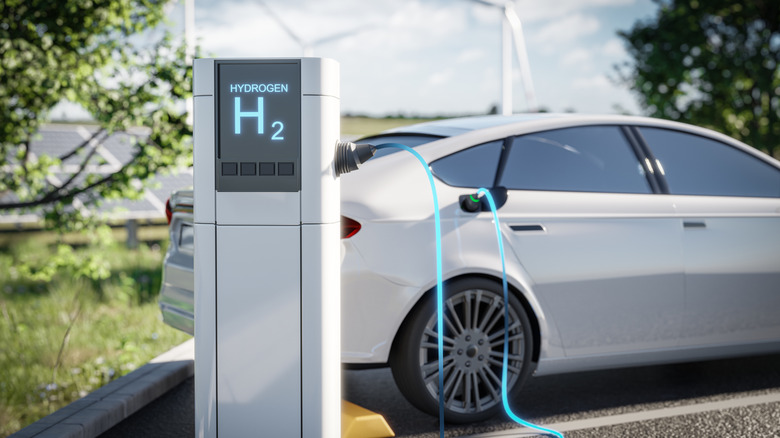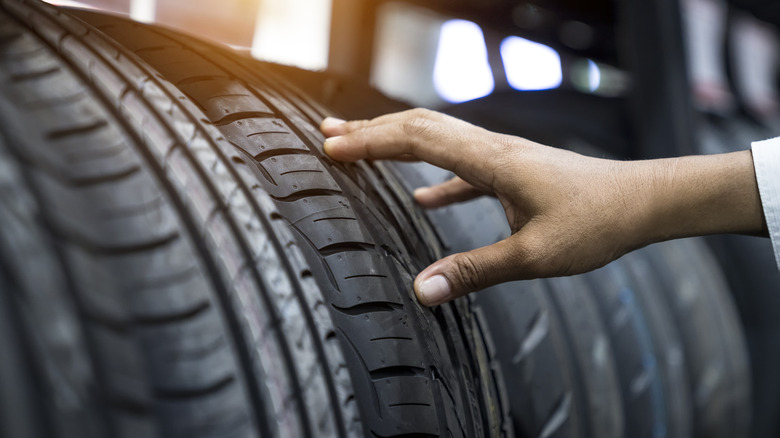Do Hydrogen Cars Need Special Tires?
With more and more automakers taking measures to lessen their vehicles' reliance on fossil fuels, much of the conversation around alternative energy is centered on battery power. There are millions of battery-powered electric vehicles on the road today, though the range capabilities of the best and worst EVs can vary dramatically. But even as battery power remains the primary focus for most EV automakers, it is not the only option in the game, with certain manufacturers opting for hydrogen to power their vehicles from point A to point B.
Hydrogen vehicles use the same electric motors as battery-powered EVs, but power those engines with a fuel-cell stack that produces electricity through a reaction between pure hydrogen and oxygen. One of the primary benefits of hydrogen power is that it only produces water vapor through the exhaust system. Conversely, most of the world's pure hydrogen is made from natural gas, making it particularly energy-intensive. Like battery-powered vehicles, hydrogen cars power up at charging stations, only theirs disperse pure hydrogen.
At present, hydrogen cars are only being sold in California, with Honda, Toyota, and Hyundai currently offering hydrogen-powered vehicles. While there are many things to consider when it comes to hydrogen cars, tires are not on that list. That means you do not need to fit your hydrogen car with specially-made tires before hitting the road.
Tires designed for EVs may benefit a hydrogen car
While the answer might seem obvious, the question of whether or not an electric vehicle using hydrogen power might require special tires is hardly a silly one. After all, EVs provide a very different driving experience than vehicles powered by internal combustion. One of the bigger differences is that EVs, including those using hydrogen power, tend to deliver more torque than their gas counterparts. Increased torque, of course, puts additional stress on a tire, and that can indeed increase tire wear. So too can the vehicle's weight, as EVs are typically heavier than cars powered by fossil fuels.
Tire noise is also something to consider with a hydrogen-powered EV because electric vehicles are far quieter than those that run on gas. That means drivers will hear a lot more of the tire on the road than they may be accustomed to, unless their EV is fitted with tires designed to reduce noise created by that friction.
All that being said, it is worth reiterating that any tire can be used on your hydrogen-powered EV, so long as it meets the vehicle's load and size requirements. There are, however, several EV-compatible tires available on the market that are geared toward making the most of your driving experience. Manufacturers build these tires to be quieter, more durable, and with increased traction, although it should be noted that EV tires tend to be a little bit pricier than non-EV-specific models.

